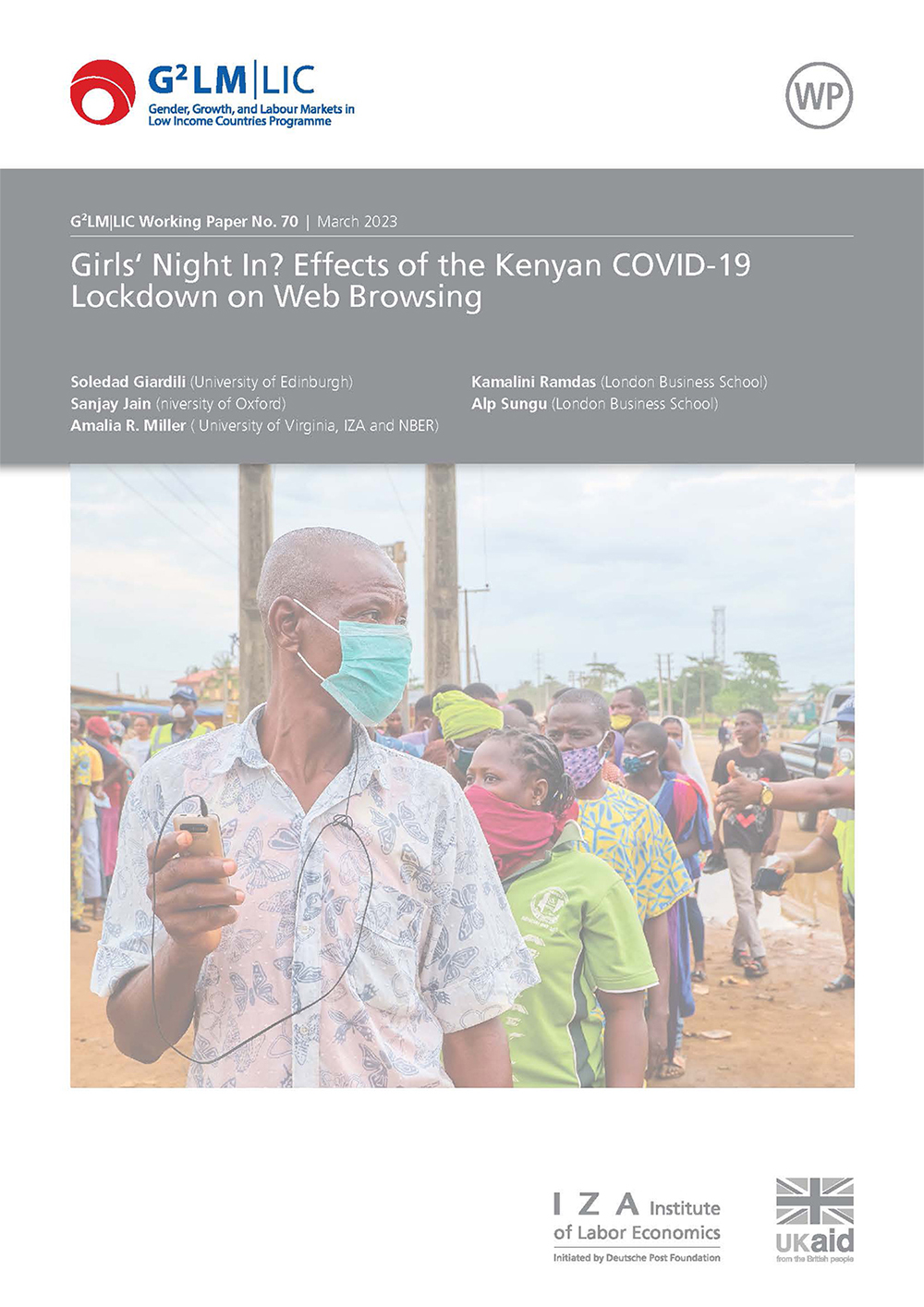We present the first objective evidence on how Covid-19 affected browser usage in Africa, using detailed digital trace data on the PC-based and smartphone-based browsing patterns of 316 Kenyans who had access to a PC, covering the period before and during Kenya’s first national lockdown in March 2020. We find that total daily browser usage increased by 41 minutes after the lockdown started, with no significant differences by gender or by residence in high-speed vs. low-speed broadband access areas. Women’s usage of YouTube and Netflix exceeded men’s throughout our sample period, and the gender gap in Netflix usage increased by 36 minutes post-lockdown. We find relatively more concentrated browsing by women post-lockdown, in terms of both domains and topics. Our analysis suggests that this is due to men visiting sites earlier exclusively visited by women. The browsing of Kenyan domains went down significantly post-lockdown, relative to that of non-Kenyan domains, indicating greater reliance on international content during this period of economic and social downturn.

Girls’ Night In? Effects of the Kenyan COVID-19 Lockdown on Web Browsing
- Amalia Miller
- Kamalini Ramdas
- Alp Sungu
- Soledad Giardili
- Sanjay Jain